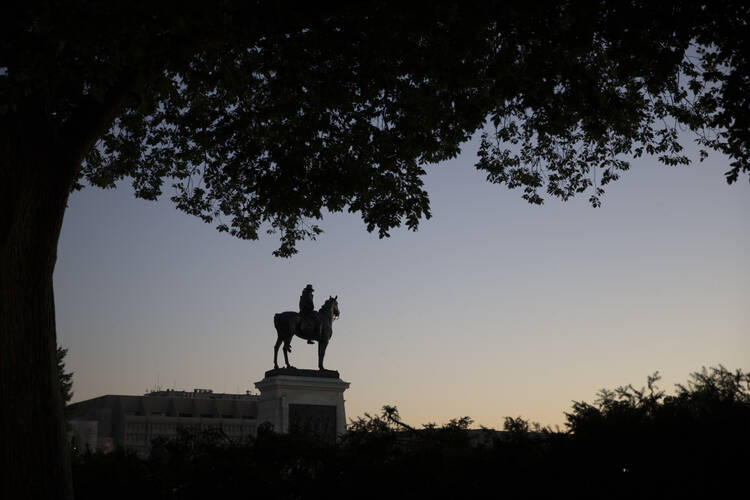Rethinking the life and presidency of Ulysses S. Grant
Recent years have brought a chorus of voices seeking to correct the image of Ulysses S. Grant as a business failure, a drunk forced out of the army at the end of the Mexican-American War, a Civil War general who butchered both Northern and Southern troops and, ultimately, a failed president who presided over the most corrupt regime in our history. Pulitzer Prize-winning historian and biographer Ron Chernow is the most recent of Grant biographers seeking to correct the record.
His doorstopper of a biography (1,200 pages) will entertain the general reader and challenge the historian. Among the many aspects of Grant’s life he considers, three stand out in Chernow’s account: Grant’s alcoholism, his military career and his presidency.
As regards his alcoholism, Chernow consulted with his own brother, a medical doctor, and concluded that Grant was a lifelong alcoholic, a solitary drinker who went off onto prolonged binges. But the author agrees with the renowned Civil War historian Shelby Foote, who in Ken Burns’ Civil War documentary claimed that Grant controlled his drinking whenever a major battle was to be fought.
After President Abraham Lincoln had fired five generals, all of whom failed to capture Robert E. Lee on the Eastern front in the Civil War, he appointed Grant the commander of the army. Grant waged successful campaigns in the West, through the states of Tennessee and Mississippi, but his capture of Vicksburg was a turning point in the war. Historians question the high losses that Grant’s troops absorbed, but Grant was a better strategist than Lee. He had the numbers and he knew how to win.
Chernow also tries to correct the record on the Grant presidency. Grant has been called inept, lazy and totally lacking in political skills. It is true that several of Grant's cabinet members participated in schemes to bilk the railroads, take advantage of Native Americans, exploit the whiskey tax for their own gain and corner the gold market. Though his brother-in-law was involved, Grant was himself free of all corrupt charges. Ironically, Grant himself was a victim of a Ponzi scheme. Dying of throat cancer and worth $80, he wrote his famous memoirs to support his wife.
Only recently have historians recognized the accomplishments of the presidency of Ulysses S. Grant.
Only recently, Chernow notes, have historians recognized the accomplishments of the Grant presidency. Grant tried to enforce the goals of Reconstruction in the Southern states when he sent federal troops into South Carolina to attack the KKK, and upheld the Fifteenth Amendment which gave African American men the right to vote. On the northern border, the diplomatic efforts of Secretary of State Hamilton Fish firmed up the friendly relations between the United States and Canada which have lasted into the present day.
Consequently, surveys ranking presidents no longer place Grant at the bottom. A recent survey of American historians ranked Grant as 22, in the middle of the pack. Not a bad comeback for a failed farmer and bankrupt businessman at the age of 38 on the eve of the Civil War. For Grant, history has finally decided to be kind.
This article also appeared in print, under the headline “He did more than win a war,” in the March 5, 2018, issue.











